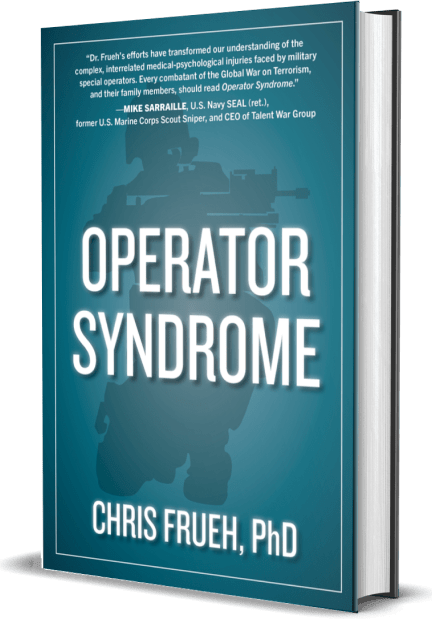

Latest Book Release
Operator Syndrome
“Dr. Frueh’s efforts have transformed our understanding of the complex, interrelated medical-psychological injuries faced by military special operators. Every combatant of the Global War on Terrorism, and their family members, should read Operator Syndrome.”
– MIKE SARRAILLE U.S. Navy SEAL (Ret.), former U.S. Marine Corps Scout Sniper, and CEO of Talent War Group
Buy Now →





